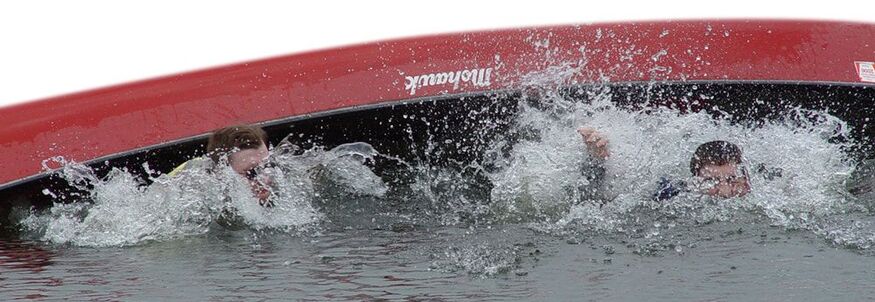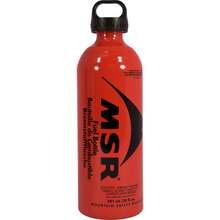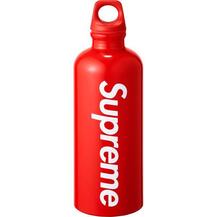Off-site sharing & learning
Yukon off-site trip leaders gather 2-3 times each year to debrief major trips. This is an opportunity to share experiences and grow our collective knowledge. Trip leaders share near misses, incidents, success stories, location information, gear considerations etc. in an environment that is open and non-judgemental.
These meetings are for trip leaders and Off-Site Review Committee members.
If you are a Yukon off-site school trip leader and are interested in attending a trip debrief session, contact the Off-Site Review Committee via [email protected].
These meetings are for trip leaders and Off-Site Review Committee members.
If you are a Yukon off-site school trip leader and are interested in attending a trip debrief session, contact the Off-Site Review Committee via [email protected].
Every trip has its moments of brilliance when everything goes better than planned. Not surprisingly we've all experienced our fair share of blunders where we would have liked a re-do. The great thing is we can learn a lot from both of these scenarios if we take a moment to share them.
This forum is dedicated to just that, sharing the good, the bad and the brilliant from our collective trips with the goal of improving trip experiences for students and ourselves.
Please use the form below to share. What might seem relatively insignificant to you may be just the what someone else needed to hear before their next trip.
This forum is dedicated to just that, sharing the good, the bad and the brilliant from our collective trips with the goal of improving trip experiences for students and ourselves.
Please use the form below to share. What might seem relatively insignificant to you may be just the what someone else needed to hear before their next trip.
Sharing & learning
When we share, we learn.
We will re-post these aha moments with no personal identifiers attached.
Thanks for sharing!
We will re-post these aha moments with no personal identifiers attached.
Thanks for sharing!
Rain gear
Rain gear is an item on the gear list with a vast price range and varying quality levels. Today we are surrounded by various fabrics such as polyester, gore-tex, and rubber. It can be overwhelming for parents and students to choose appropriate gear for your trip. After spending years on a variety of outdoor trips in various weather conditions, here are a few rain gear tips:
-Is it waterproof or water-resistant? This is important as many students come equipped with simple water-resistant gear that quickly soaks through when exposed to prolonged rain. Water-resistant rain gear has resulted in student evacuations in the Yukon due to the increased risks of hypothermia exposure. Make sure it is waterproof!
-Does more expensive mean more waterproof? Nope, it does not. I have a variety of rain gear that ranges from $100 rubber jackets and pants to $1000+ GoreTex jackets and bib pants. During those trips where the rain won't stop, I always have my simple rubber rain gear. Rubber rain gear doesn't breathe like its Gore-Tex counterpart; however, it will keep you warm and dry when the rain won't let up.
-Rain gear in the shower? An excellent way to test to see if your rain gear is still waterproof is to put it on and jump in the shower. Goretex coats and other brands can lose their waterproofness over time. It is always good to test your gear before you need it in the field! Taking care of your gear: Some higher-end rain gear brands recommend that you wash and treat it regularly with a specialized detergent to help extend your jacket or pants' life.
-I have a jacket but do I need pants? Every time I put on my rain jacket on trips, I also put on my rain pants. The Yukon weather can quickly change; having dry pants and underwear will reduce the amount of stress on your student's wilderness experience.
-"There is no such thing as bad weather, just bad gear." Having the right equipment will make your students more comfortable, leading to a more enjoyable outdoor activity conducive to positive experiential learning.
-Is it waterproof or water-resistant? This is important as many students come equipped with simple water-resistant gear that quickly soaks through when exposed to prolonged rain. Water-resistant rain gear has resulted in student evacuations in the Yukon due to the increased risks of hypothermia exposure. Make sure it is waterproof!
-Does more expensive mean more waterproof? Nope, it does not. I have a variety of rain gear that ranges from $100 rubber jackets and pants to $1000+ GoreTex jackets and bib pants. During those trips where the rain won't stop, I always have my simple rubber rain gear. Rubber rain gear doesn't breathe like its Gore-Tex counterpart; however, it will keep you warm and dry when the rain won't let up.
-Rain gear in the shower? An excellent way to test to see if your rain gear is still waterproof is to put it on and jump in the shower. Goretex coats and other brands can lose their waterproofness over time. It is always good to test your gear before you need it in the field! Taking care of your gear: Some higher-end rain gear brands recommend that you wash and treat it regularly with a specialized detergent to help extend your jacket or pants' life.
-I have a jacket but do I need pants? Every time I put on my rain jacket on trips, I also put on my rain pants. The Yukon weather can quickly change; having dry pants and underwear will reduce the amount of stress on your student's wilderness experience.
-"There is no such thing as bad weather, just bad gear." Having the right equipment will make your students more comfortable, leading to a more enjoyable outdoor activity conducive to positive experiential learning.
Smoked out!
This mishap occurred about 10 years ago at a camp where everyone was staying in wall tents in the winter time. It was about -30C so the wood stoves were working overtime. I woke up in the night to a tent full of smoke. The person I was sharing the tent with had stacked a large amount of wood so close to the stove that it started to produce smoke! Since then I always pack a basic smoke alarm with a 9V battery with me. I set it next to my cot at night. I've found that 9V batteries do very well in the cold.
Water or white gas?
This story has been told and re-told 100 times but it remains important for Yukon trip leaders. Twice in the past twenty years someone on a field trip drank white gas (aka Naptha) thinking it was drinking water. Ingesting white gas can be lethal. This is why we avoid using the tall water-bottle like white gas canisters.
Windy Day and Capsizes on the Takhini River
This is a summary of a day canoe trip from Mendenhall Landing to the Takhini River bridge on the Alaska Hwy, a distance of 34km with an average current speed 3km/h. At two different times boats capsized.
Capsize 1, We realized after the fact that the stronger student that we put in the stern had missed the river day of training. We rely on training parent volunteers to help with leadership in keeping the group together. Clarifying these expectations with a handout would be helpful. The girls' buddy boat, with a parent who had also missed the river session, decided to buddy up and adjust a layer, wind blew them to some small sweepers and an upstream tilt caused the capsize. Buddy boat was beside them. The whole group stopped on a mud bar for them to get changed, have hot drinks, lunch, make some partner switches so they would each have a stronger partner.
Capsize 2, Apparently the stern paddler was walking up to the bow and they capsized due to silliness. This was just before Annie Ned Creek. After rounding that big bend we got slammed by the wind and lost control of on the water communication. We signalled to land on river right and we decided to make 3 rafts of 5 boats each. This took close to an hour to organize and we were in very sticky mud. Rafts worked well and we kept in rafts the rest of the day. A lot of lessons learned.
Factors & lessons learned:
-Complex shuttle logistics with 6 parent volunteers
-Should have preassigned boat partners
-Should have got the drivers to pull the trailers forward so we'd have room to have everyone stand beside their boat and assess who were in the small Guide boats
-Strong winds at the put in made it harder to stage
-Situational awareness, regarding paddling through the culvert
-A pre-trip checklist to keep us on track would be beneficial.
Capsize 1, We realized after the fact that the stronger student that we put in the stern had missed the river day of training. We rely on training parent volunteers to help with leadership in keeping the group together. Clarifying these expectations with a handout would be helpful. The girls' buddy boat, with a parent who had also missed the river session, decided to buddy up and adjust a layer, wind blew them to some small sweepers and an upstream tilt caused the capsize. Buddy boat was beside them. The whole group stopped on a mud bar for them to get changed, have hot drinks, lunch, make some partner switches so they would each have a stronger partner.
Capsize 2, Apparently the stern paddler was walking up to the bow and they capsized due to silliness. This was just before Annie Ned Creek. After rounding that big bend we got slammed by the wind and lost control of on the water communication. We signalled to land on river right and we decided to make 3 rafts of 5 boats each. This took close to an hour to organize and we were in very sticky mud. Rafts worked well and we kept in rafts the rest of the day. A lot of lessons learned.
Factors & lessons learned:
-Complex shuttle logistics with 6 parent volunteers
-Should have preassigned boat partners
-Should have got the drivers to pull the trailers forward so we'd have room to have everyone stand beside their boat and assess who were in the small Guide boats
-Strong winds at the put in made it harder to stage
-Situational awareness, regarding paddling through the culvert
-A pre-trip checklist to keep us on track would be beneficial.



